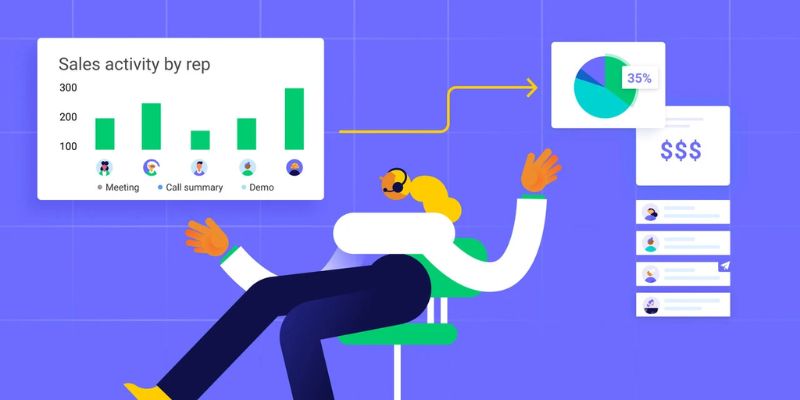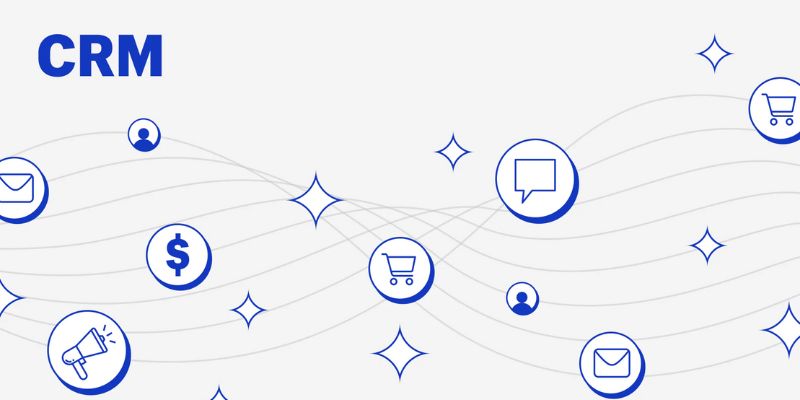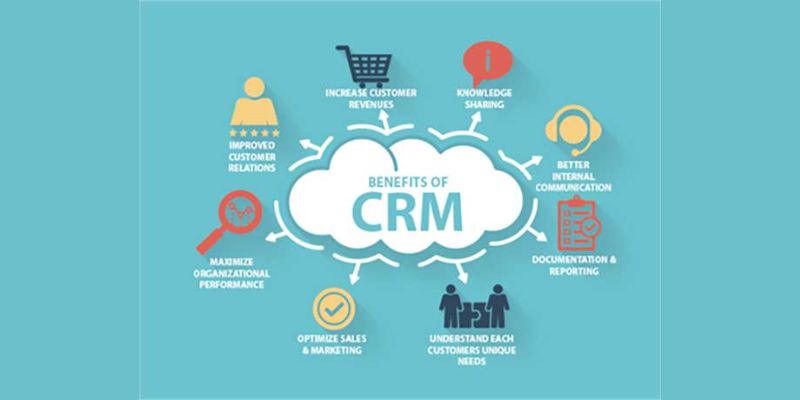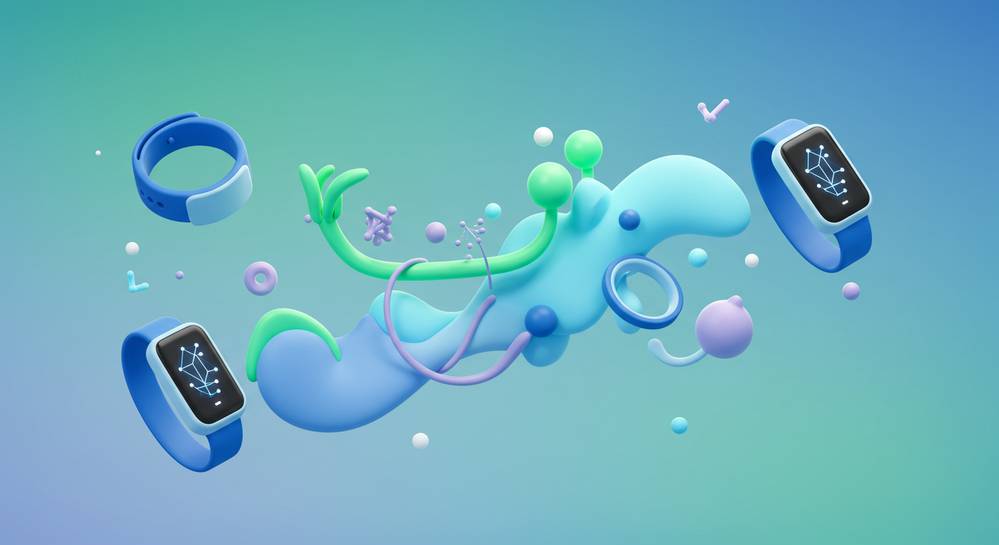Exploring CRM solutions tailored for small businesses isn’t just about managing contacts; it’s a game-changer for your growth. As a small business, you need tools that fit like a glove – not one-size-fits-all. You must understand the CRM landscape to pick the right tool. It’s about essentials that sync with your team’s spirit and startups’ energy. Let’s dive into comparing systems that not only track sales but also build relations. We’ll explore integration and customization that speaks your customer’s language, and pin down cost-effective solutions that grow as you do. Lastly, we’ll unlock CRM’s power to keep customers coming back, supporting your mission day after day. Ready to transform your small business with the perfect CRM match? Let’s cut through the noise together.
Understanding the CRM Landscape for Small Businesses
Assessing CRM Essentials for Emerging Enterprises
When you start a business, you know you need to keep your customers happy. That’s where CRM – customer relationship management – comes in. It’s a way to track all the stuff that makes your customers tick. Think of it like a super-smart address book. It stores names, orders, and even when you last talked. But it’s also like a crystal ball that helps tell you what your customers might want in the future.
CRM for small business essentials should include a few key things. First, it needs to be easy to use. You want to spend time with your customers, not fighting with software. Second, it should grow with your business. You’re planning to grow big, right? Your CRM should have your back. And very important, it’s got to be safe. It keeps a lot of details about your customers, so you need to keep all that info locked up tight.
Comparing the Best CRM Systems for Startups
So, how do you find the best CRM for your new business? Start by looking at what makes each CRM special. The best CRM for startups are the ones that make your life easier. Let’s say you sell super cool handmade soap. You’ll want a CRM that lets you track who’s buying what, so you can suggest new scents they’ll love.
Cloud-based CRM options are all the rage because they let you and your team work from anywhere. All your customer info is stored online, safe and sound, but easy to get when you need it. And with a CRM mobile app, you can check in on things even when you’re out finding new scents for your soaps.
Choosing the right CRM software starts with comparing them. What features do they offer? Can they help you not just with sales, but with marketing and customer service too? How about prices – can you afford it now, and will it still make sense when you have twice as many customers? Can it play well with other software you use?
Now, don’t stress. You don’t have to figure this out alone. You can find CRM vendor selection guides that’ll take you step by step through the process. Or, you could get a CRM demo to see how it works with your very own eyes.
What’s really cool is how much you can do once you’ve got the right system. You can automate stuff so that your computer sends thank you notes when someone makes a purchase, or reminds them to come back if they haven’t visited in a while. It’s like having a helper who never needs to sleep.
CRM systems work best when they fit what your business does. If you have special things you need, look for CRM customization for niche markets. This means the CRM is set up just for businesses like yours.
There’s a lot to think about, but remember, the goal here is to make your business fly. With the right CRM, you can not only keep your customers smiling, but you can also find new ones and grow your business without losing your mind. Now, roll up your sleeves and let’s find the magic wand that is the right CRM for your business!

CRM Integration and Customization Strategies
Implementing CRM for Holistic Customer Data Management
Picking CRM tools seems tough, right? But it’s key for customer info and sales growth. Imagine all your customer details in one place. That’s what customer relationship management systems do. They keep sales, service, and marketing info together. So, you can see your business from every angle.
How do these tools improve business? Well, they help you act on customer needs fast. This means more sales and happier customers! You have to choose CRM for small business essentials. This includes sales automation CRM and marketing automation features. When your business grows, your CRM grows with you. That’s CRM scalability. It’s super vital.
Adding CRM to your business can feel like a puzzle. That’s CRM system integration. But don’t sweat it! There are steps to make it easier. First, know what you want from the CRM. Then, find the best CRM for startups. Align it with what you aim to do. Want help from pros? They can guide you through CRM software comparison. And choose a system that fits just right.
Tailoring CRM Features to Niche Market Needs
Every business is unique. That’s where CRM customization for niche markets shines. A flower shop’s needs differ from a tech startup’s, right? After CRM software comparison, go for a solution shaped for you. This means it’s got what matters for your field.
Say you run a pet store. Your CRM must track pet birthdays or vet visits. That’s a CRM user interface for small teams. It’s easy to use and designed for your market. When your CRM fits your niche, you serve customers like a champ!
Does this take tech wizardry? Nope! Start by spotting CRM features for SMEs that match your needs. Chat with the CRM vendor. Ask for a CRM demo for business evaluation. See what clicks with your daily tasks. After finding the one, nail down the CRM onboarding process. This is how you roll it out for your team.
Don’t forget CRM tech support for SMBs. It’s a safety net for when you hit snags. And check out CRM training for small teams. This boosts how well your team uses the CRM. Happy employees mean happy customers.
Wrap-up time? One word – CRM is huge for small businesses. It helps you juggle customer info and scoop up more sales. Get CRM that grows with you and fits your market. With this, you’re all set to unleash growth and win big!

Cost-Effectiveness and Scalability in CRM Solutions
Selecting Affordable CRM Software with Robust Analytics
When you think CRM, you might see dollar signs. But listen, it doesn’t have to break the bank. Let’s talk about CRM for small business essentials. You want a system that’s light on cost but heavy on features, right? Imagine a toolkit that’s like a Swiss Army knife, but for your customer info. That’s what affordable CRM software is all about.
Now, finding the best CRM for startups is like finding a needle in a haystack. But don’t sweat. You start with a CRM software comparison. It’s kind of like dating – you want to find the right match. Look for CRM features for SMEs that line up with your goals. Do you need killer sales automation CRM options? Or rock-solid customer data management? Make sure they’re in there.
One big question is: How does CRM analytics give business insights? Simple. It turns raw data into gold — customer gold. It tells you what your customers love, what they don’t, and even what they might want next.
Cloud-based CRM options? They’re a game-changer. They grow with your business, and you can access them from anywhere. Just think, you could be sipping a latte and checking your sales pipeline on your CRM mobile app. Talk about freedom, right?
Ensuring CRM Scalability and Role of Cloud-Based Services
Scalability. Sounds fancy, but it just means your CRM can grow as you do. You don’t want to change tools every time you hire a new team member. Look for CRM scalability. This way, when your business booms, your CRM pumps up like a balloon – but doesn’t pop.
So, why go cloud-based? Big reason: it’s everywhere you need it. You can be on a beach or at a taco stand and still pull up your contact management solutions. Plus, CRM system integration is a breeze. That means it plays nice with other software you’re using.
And get this, CRM security for confidential data is top-notch with these services. They’re like fortresses in the sky. Keeping your customer details safe is like locking your treasures in a castle. It has to be iron-clad.
CRM onboarding process? It’s smoother with cloud services. They’re built to help small teams jump in fast. With CRM training for small teams, you’re all set to race from the get-go. Anything less is like wearing a lead coat at a sprint.
Picking a CRM is a huge step. But with the right guidance and a sharp eye on cost-effectiveness and scalability, it’s like finding the perfect pair of shoes. They fit just right, look great, and take you places. Just remember, the CRM world is your oyster – find the pearl that fits your budget and dreams.

Maximizing CRM Benefits for Customer Engagement and Retention
Fostering Customer Support through CRM Tools
Think of your business like a garden. Your customers are the plants, each one unique. Just like plants need water and light, your customers need attention and care. CRM tools are your watering cans and sunshine. They help you keep track of what each customer needs, so you can give the right care at the right time.
Now, what are CRM tools exactly? They’re systems that help you manage customer data, sales, and even marketing. They store details about your customers. This way, you know who loves your new product or who might need a nudge about a sale.
Let’s say you sell handmade soaps. One customer might only buy lavender soaps. Your CRM can tell you this. Then, you can reach out to them whenever you have a new lavender product. That’s customer support boosted by CRM.
CRM Training and the Impact on Small Business Growth
Getting new tools is great, but knowing how to use them is better! CRM training gives you and your team the skills to use the tools well. Think about a new bike. If you don’t know how to ride it, it’s just going to sit there. But once you learn, you can go farther and faster than walking.
Training helps your team understand how to use the CRM. They learn to find customer details, check past sales, and see who might buy more. It’s like having a map for your business. Now, you know where you are, where you want to go, and how to get there.
Using CRM right can help your small business grow. It’s all about keeping your customers happy and coming back. When your team knows the CRM inside and out, they can help customers better. This makes your customers trust you more. And trust brings growth. It’s like planting the right seeds for a great harvest.
To sum up, the CRM is a tool that can bring your small business to the next level. Use it to make customer support strong. And, get good training, so you can use your CRM to push growth. Remember, a well-used CRM is like a garden in full bloom—it shows the care you’ve put in and keeps customers coming back.
In this post, we deep-dived into the CRM world tailored for small businesses. We started by getting a grip on the CRM essentials, vital for up-and-coming companies. We also lined up top CRMs perfect for startups to consider.
Then, we talked about fitting CRM into your business like a glove. We highlighted how to manage customer data better and adapt CRM features for your unique market.
Next, we checked out how to save money while picking a strong CRM. It’s all about finding value and planning for growth, with an eye on cloud services.
Lastly, we tackled how to use CRM to keep customers coming back. We went through boosting support and how proper CRM training can push your business up.
In short, CRM is your partner in making your customers happy and your business sharp. It’s a game-changer, so choose wisely, use it well, and watch your small business soar.
Q&A :
What is a CRM solution and how can it benefit small businesses?
Customer Relationship Management (CRM) solutions are software tools designed to help companies manage and analyze customer interactions and data throughout the customer lifecycle. For small businesses, CRM solutions can aid in organizing contact information, sales management, productivity, and customer retention. By storing all details concerning customer interactions, CRM software for small businesses can enhance customer service, drive sales growth and build sustainable customer relationships.
How do CRM solutions differ for small businesses versus large corporations?
While CRM solutions serve a core purpose of managing customer relationships for both small and large businesses, the scale, complexity, and features required can significantly differ. Small businesses often need more straightforward, user-friendly systems that focus on essential functionalities like contact management, lead tracking, and customer support, without the extensive customization and analytics features that large corporations might use. Additionally, CRM for small businesses tends to be more cost-effective, with pricing structures that cater to smaller budgets.
Are there affordable CRM solutions available for startups and small businesses?
Yes, there are several affordable CRM solutions available that cater specifically to the needs of startups and small businesses. Many CRM platforms offer tiered pricing, with basic packages that include key features necessary for small operations at a lower cost. Some even provide free versions with limited functionalities that can be a good starting point for businesses on a tight budget. When seeking affordable CRM options, it’s important to weigh the cost against the features to ensure the software can scale with your business growth.
What features should small businesses look for in a CRM solution?
Small businesses should look for CRM solutions that include:
- Contact and lead management to centralize information and follow up on sales opportunities.
- Interaction tracking to record emails, calls, and meetings with customers.
- Task and deal management to set reminders and track progress in the sales pipeline.
- Email integration and templates for efficient communication.
- Reporting and dashboards for insight into sales performance and customer behaviors.
- Mobile access to manage business on the go.
- Scalability that allows the CRM to grow with the business.
How does a CRM solution integrate with other tools and software for small businesses?
A CRM solution for small businesses ideally integrates seamlessly with other tools and software such as email clients, social media platforms, accounting software, and productivity applications. This integration enables data to flow between systems, providing a holistic view of business operations and customer interactions. It also increases efficiency by automating tasks and reducing manual entry. When choosing a CRM, small businesses should ensure it offers compatibility with their existing tools, or consider switching to a software ecosystem that works together.



